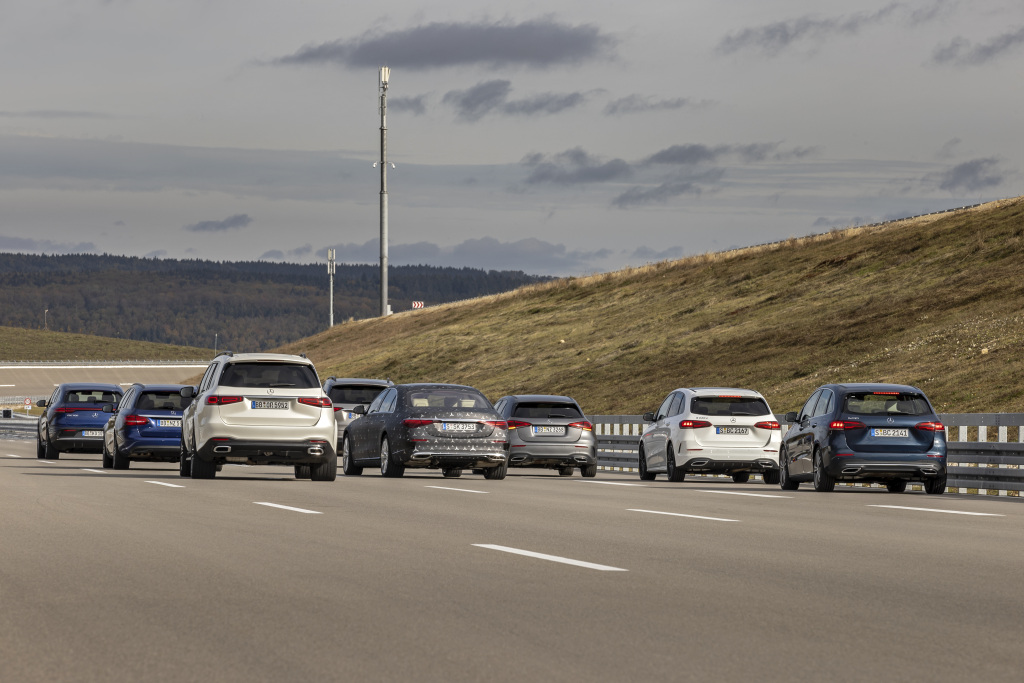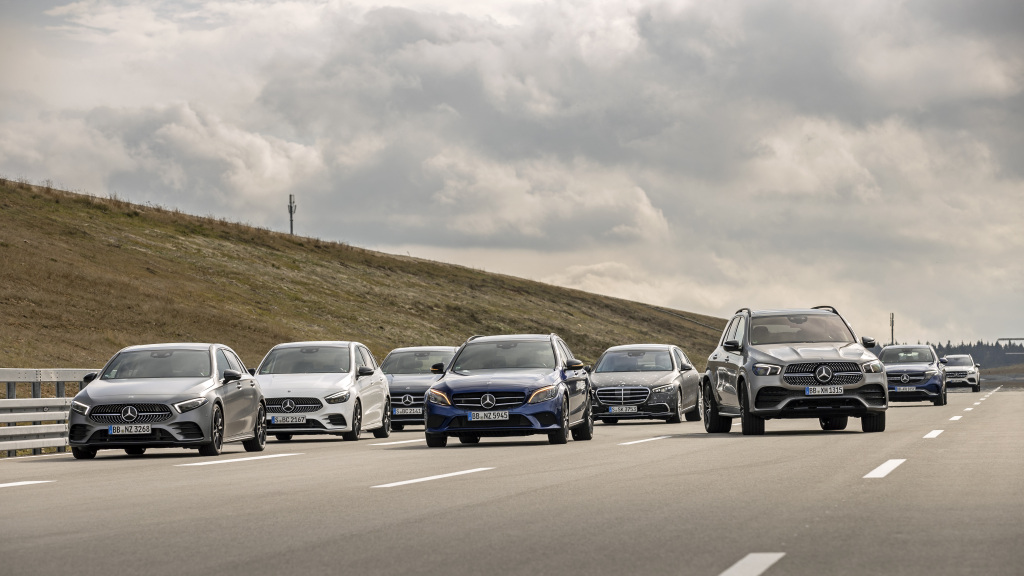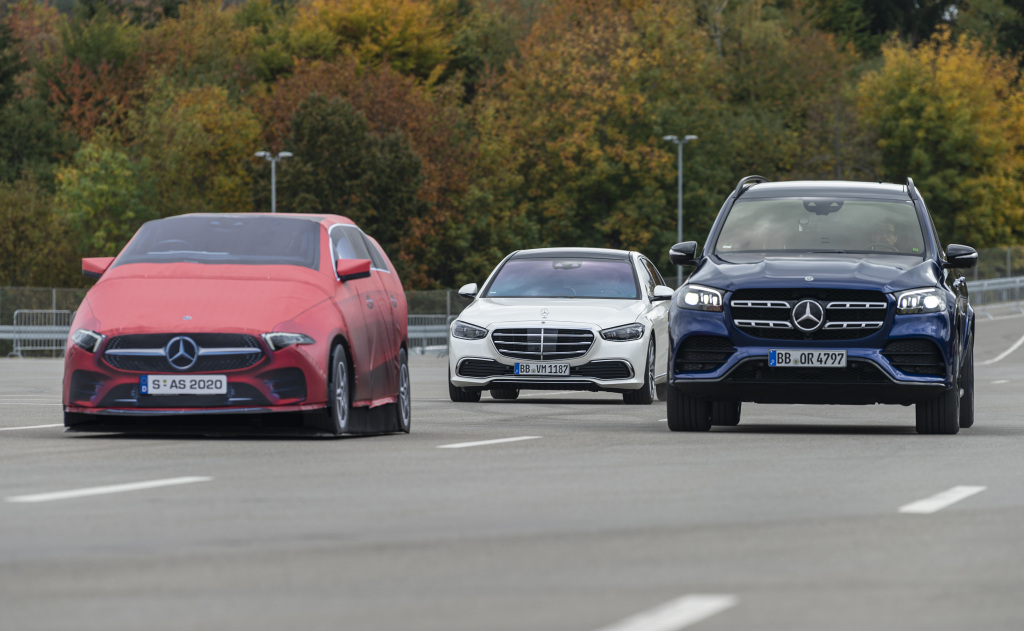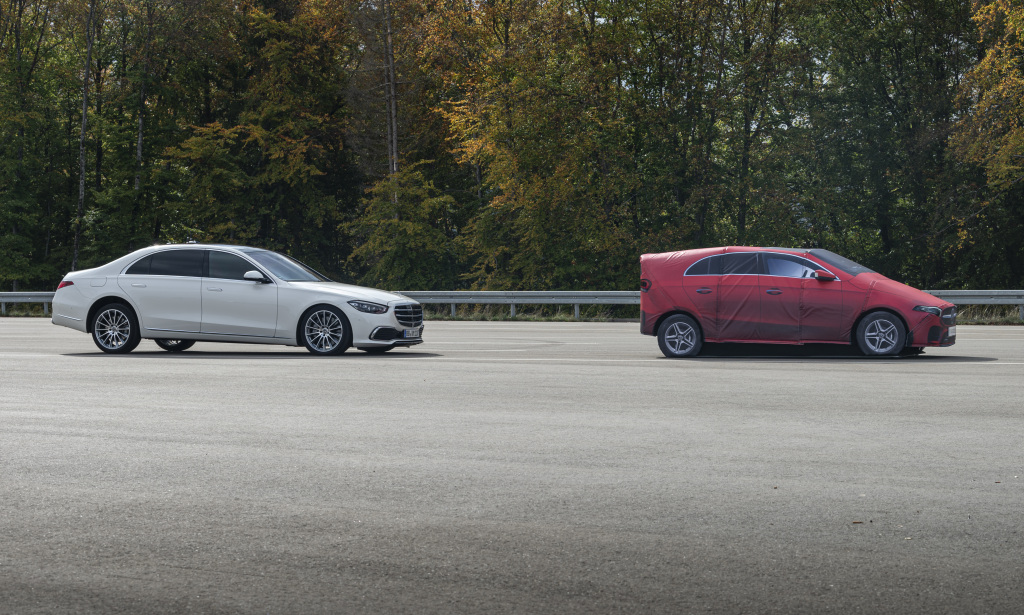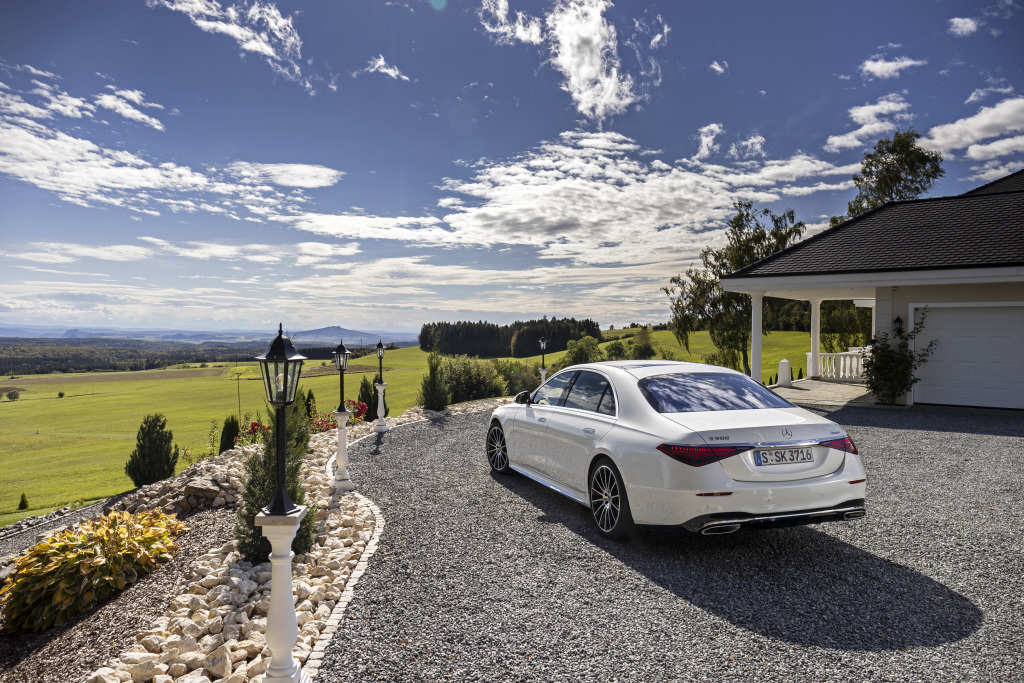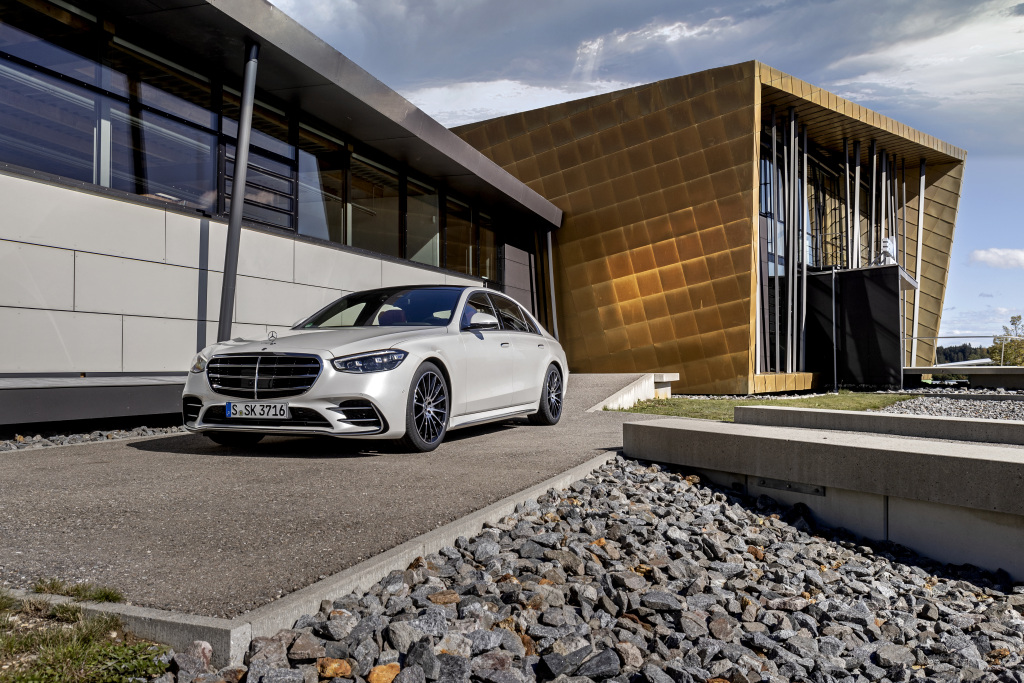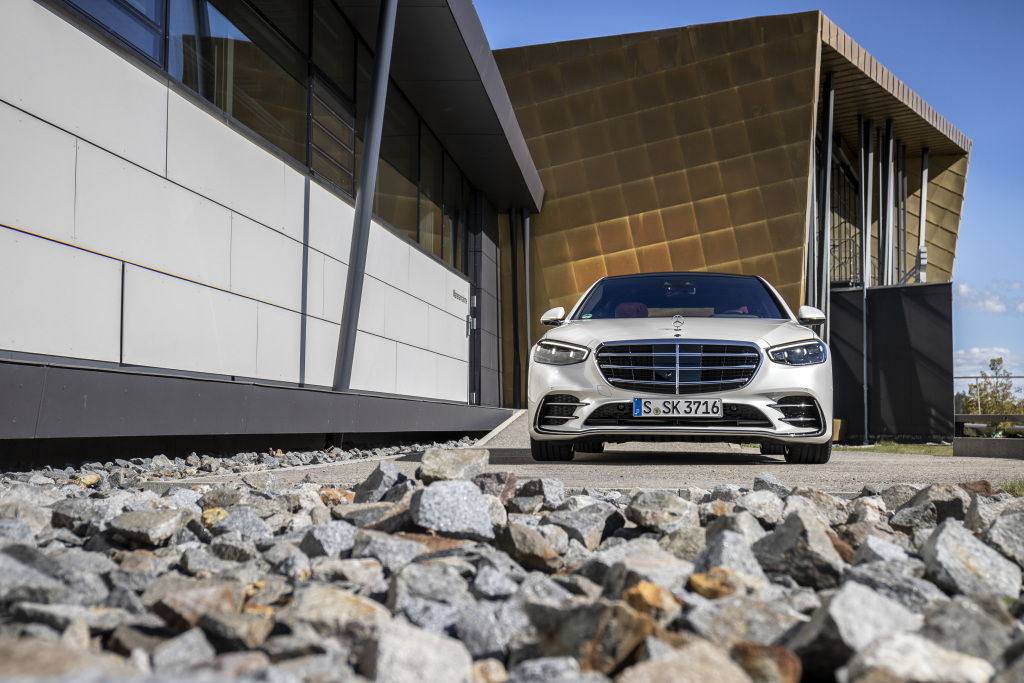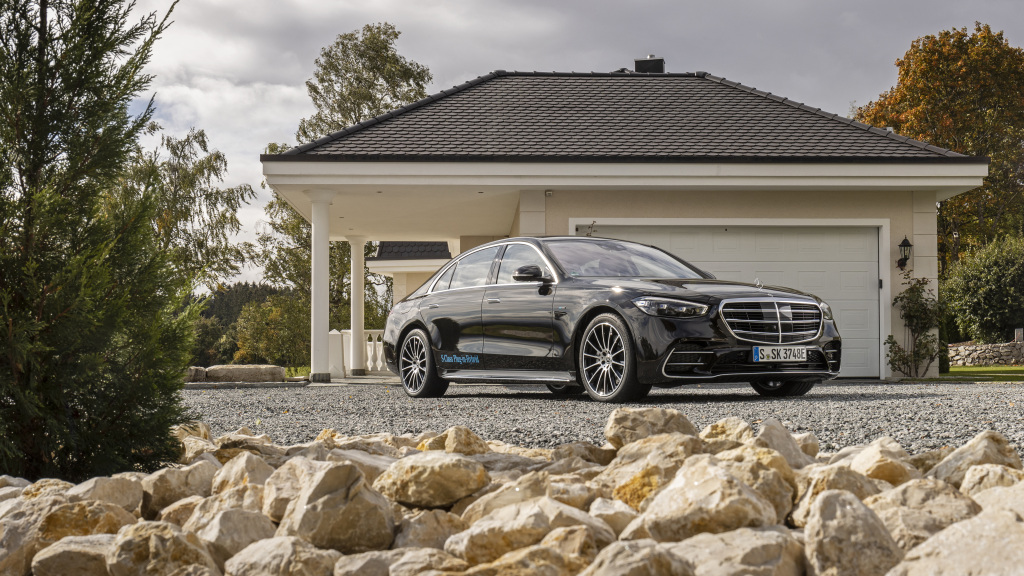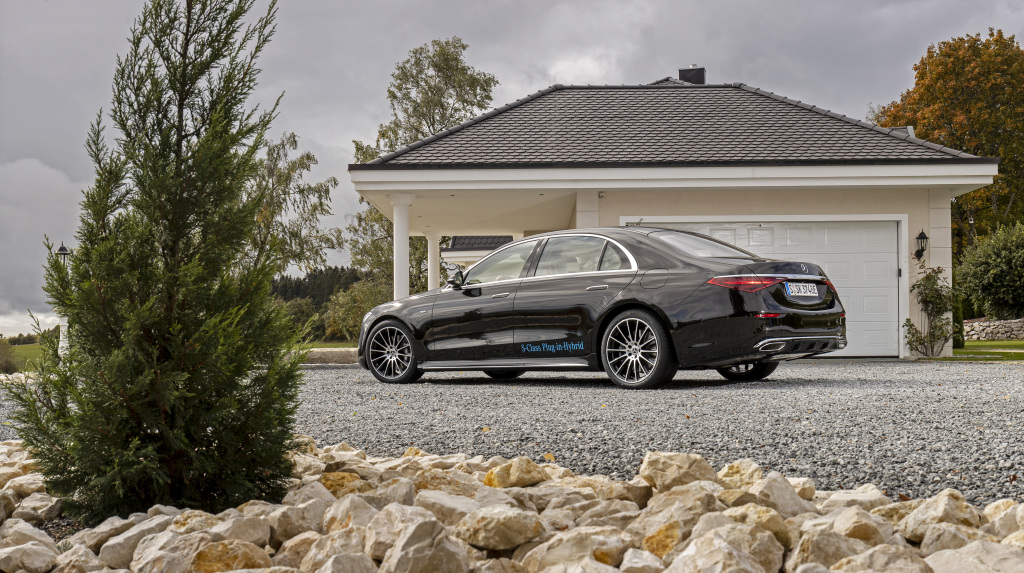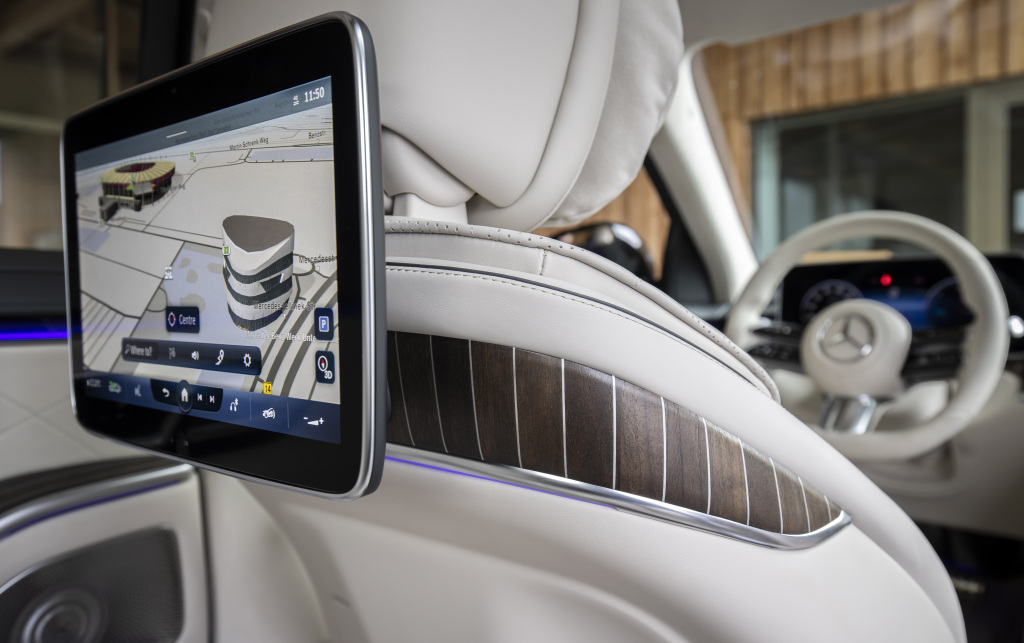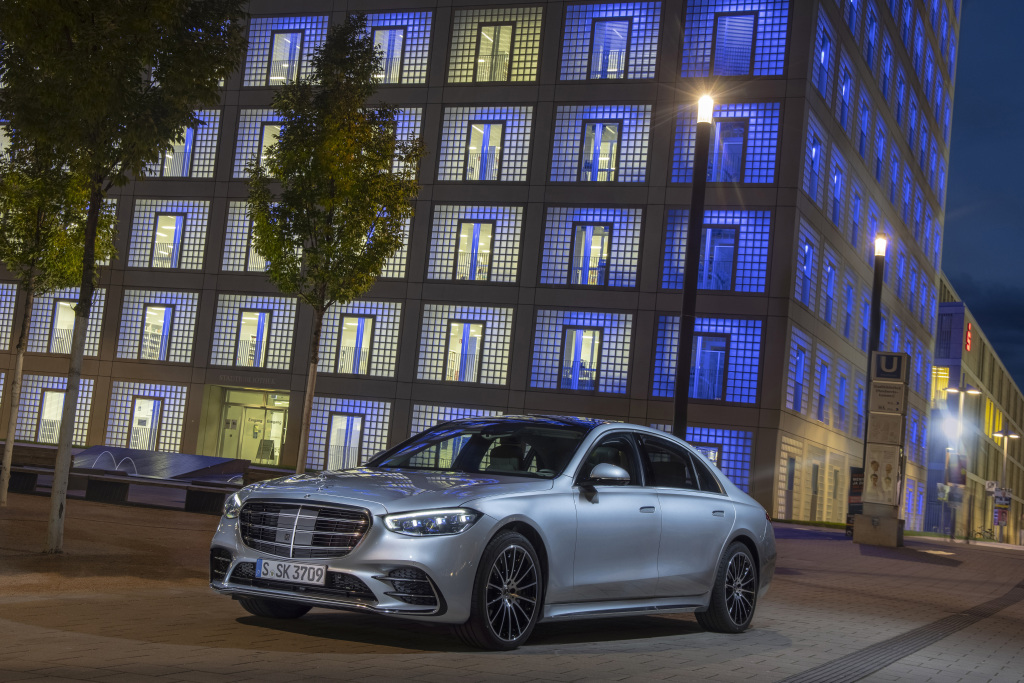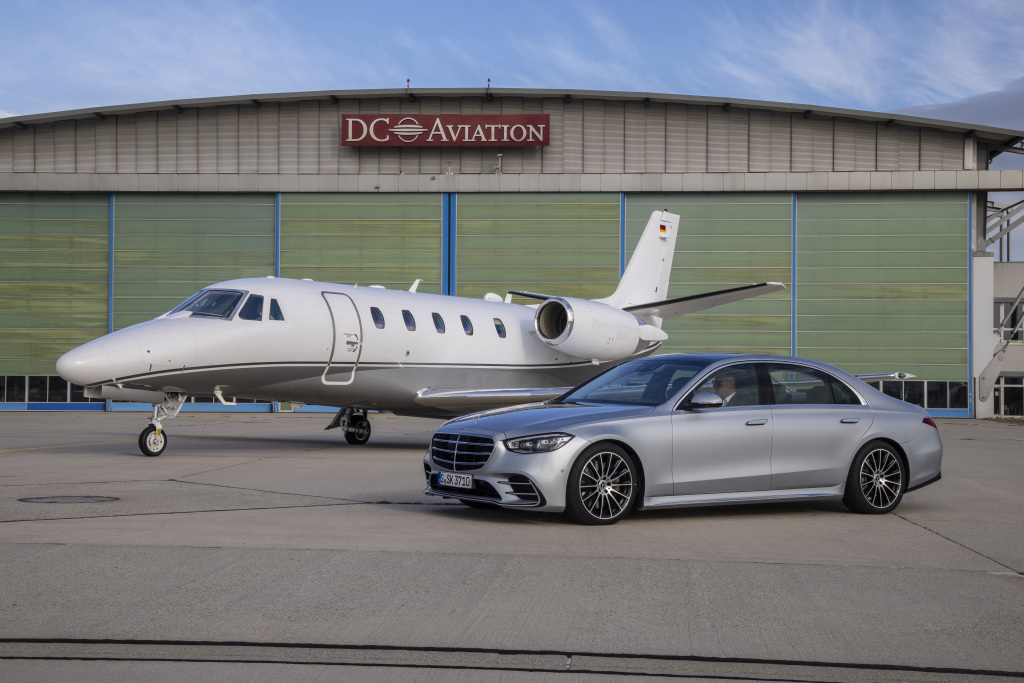Sometimes numbers say more than a thousand words.
The turning circle is reduced by up to 2 metres with rear-axle steering compared to a model without it.
The maximum steering angle is 10°.
27 languages are supported by “Hey Mercedes” with Natural Language Understanding (NLU).

Mercedes-Benz S-Klasse DRIVE PILOT
31 loudspeakers and eight exciters are included in the Burmester® high-end 4D surround sound system.
Comfort on the front passenger seat is assisted by up to 19 motors (8 for adjustments, 4 for massage and 5 for ventilation, one for the lumbar support and one to move the monitor on the reverse).
10 different massage programmes are available in the new S-Class.
The plug-in hybrid variant of the S-Class will have an electric range of up to 100 kilometres.
The display area of the augmented reality head-up display corresponds to a monitor with a diagonal of 77 inches.
The boot capacity has increased by 20 litres to up to 550 litres compared to the previous model.
With a Cd figure from 0.22,[1] the S-Class is one of the world’s most aerodynamic cars. Its drag coefficient is therefore lower than before, despite a larger frontal area 200 sq. cm.
Compared to the preceding model, elbow-room for the driver has increased by 38 millimetres and by up to 23 millimetres for rear passengers. Headroom in the rear has increased by up to 16 millimetres.
The resolution of DIGITAL LIGHT per vehicle is over 2.6 million pixels.
The computing power of MBUX (Mercedes-Benz User Experience) has increased by 50 percent compared to the system in the previous model. The memory bandwidth is 41,790 MB/s.
When a side impact threatens, the vehicle body can be raised by up to 8 centimetres by the E-ACTIVE BODY CONTROL suspension (optional) within a few tenths of a second. This is a new function of PRE-SAFE® Impulse Side:
17 step motors control the temperature and air distribution in the Thermotronic system. The 4-zone climate control Thermotronic Rear even has 20 step motors. These electric motors operate the air flaps.
In the Active Ambient Lighting system, there is an LED in an optical fibre every 1.6 centimetres. There are around 250 in all.
The new OLED central display measures 239.06 mm x 218.8 mm, and has an active screen diagonal of 12.8 inches. The screen area is 64 percent larger than in the preceding model. The driver display measures 291.6 mm x 109.4 mm and has a diagonal of 12.3 inches.
The tubular structure of the innovative rear airbag is around 16 litres, while the total volume of the deployed bag is up to 70 litres.
The control units of E-ACTIVE BODY CONTROL analyse the driving situation and adjust the suspension 1000 times per second.
The designation “S-Class” was officially introduced with the 116 series in 1972.
More than 98 kg of components made from resource-conserving materials are used in the S-Class. The number of components containing recyclates is now 120 – more than twice as many as in the preceding model. Another 40 kg or so are made from renewable raw materials.
223 is the internal designation of the new model series.
The new tool used to micro-perforate the seats operates with 16,000 needles.
The loyalty rate for the S-Class is especially high. Some 80 percent of S-Class customers in Western Europe go on to choose another vehicle from Mercedes-Benz. In the US, more than 70 percent do so.
More than one third of all saloons of the last generation of the S-Class (model series 222; début 2013) went to China. S-Class customers in China are the youngest with an average age of 40 years. Around the world the S-Class Saloon is predominantly sold in the long wheelbase version: around 9 out of 10 customers opt for the long version of the S-Class Saloon. All in all, since the launch of the generation that is now in its runout phase, more than
500,000 S-Class Saloons have been sold.
